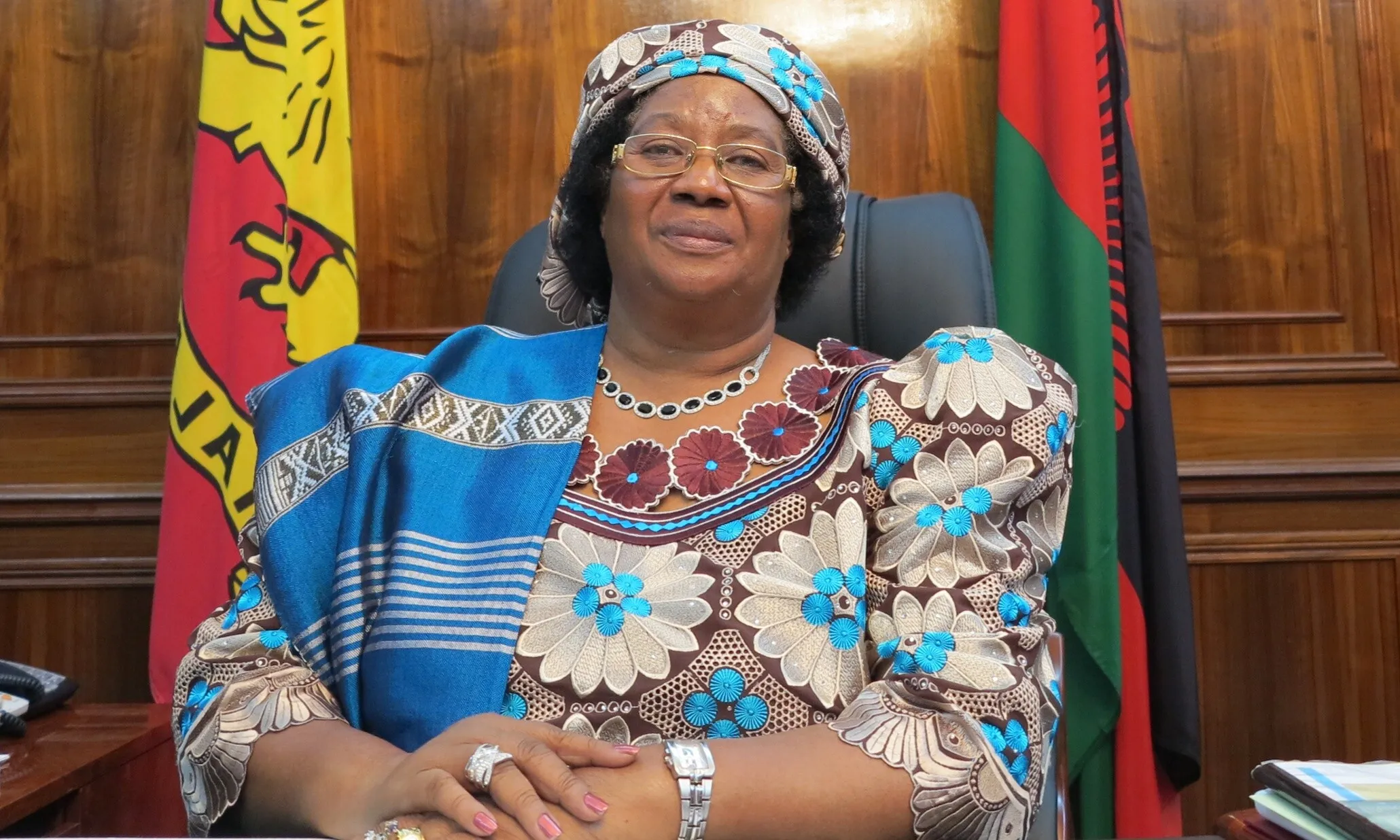…weighing her performance, she scores higher than male Presidents
…her gender, not performance cloud patriarchal Malawi
At the start of the 2025 election campaign, Malawians face the prospect of two tested and tried leaders: incumbent President Lazarus Chakwera, a man the Catholic Church and the Public Affairs Committee described as “clueless” and his predecessor President Peter Mutharika, whose removal from office included an orchestrated demonstration by a coalition of the Church, politicians and accused of “sleeping on the job.”
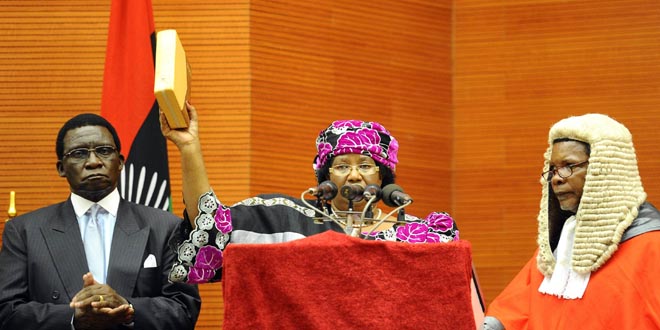
The two leaders who represent the Malawi Congress Party (MCP) and the Democratic Progressive Party (DPP), respectively – the two parties that by 2025 would have ruled Malawi a combined total of 48 years since independence in 1964. The first MCP regime, a dictatorship, lasted 30 years, while President Chakwera led the party’s return in 2020, which will be five years by the end of 2025. The first DPP rule was 2005 to 2012 under Bingu wa Mutharika, and the second from 2014 to 2020 under Professor Mutharika.
The other 12 years were ruled by the United Democratic Front (1994 to 2005), with President Muluzi ruling 10 years and Bingu an additional year before he quit the UDF to form his DPP and Peoples Party (2012 to 2014) under President Joyce Banda.
Mention Joyce Banda- rural Malawians in Muloza in Mulanje, Malosa in Zomba and Nkhamenya in Kasungu will smile. In the lower Shire, parts of Mangochi and Lilongwe, they will tell you “Amayi anatipatsa nyumba” or “Amayi anatipatsa chakudya.” Many rural women, youth, small-scale businessmen, and farmers believe she was the first president to understand poverty and share the pain with them.
Move into urban areas and mention Joyce Banda- the urban educated and semi-educated men, will shout cashgate and some interesting age as some of the reasons President Banda should never be mentioned as a possible leader for Malawi again.
Joyce Banda was Malawi’s fourth Republican President and was in office for 25 months. She does not accept that she lost the election to Peter Mutharika in 2014 and that the warehouse that housed the votes was mysteriously burnt after a later-night High Court ruling that declared Mutharika the fifth Republican President.
JB could find a soft landing in almost half of disenfranchised voters
Voices, now sporadic but steadily growing,, are calling for another look at Joyce Banda as a third alternative to cover disenfranchised voters, as a better ‘devil’ than the two leading candidates- President Chakwera and President Mutharika.
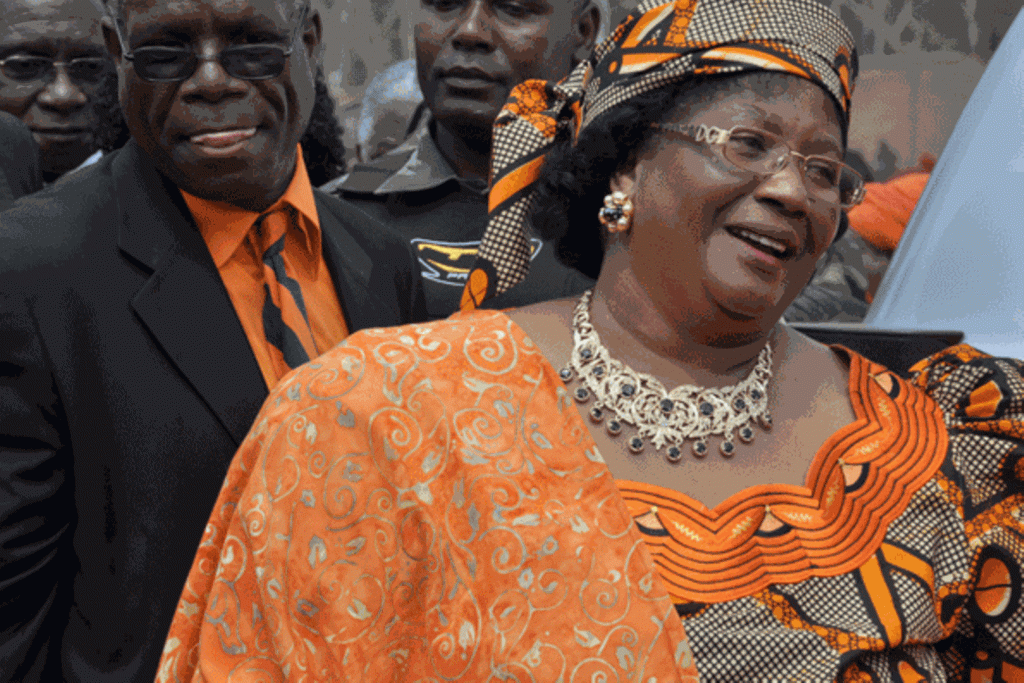
The Investigator Magazine polling has shown that almost half of voters now seem not sure how to vote, and many are toying with the idea of staying away from the polls, including supporters of the DPP and MCP.
Central Region, MCP traditional base has registered high stay away from by-elections held between 2021 and 2023, with the majority expressing dissatisfaction over the high cost of living, reduction of farm inputs programme beneficiaries and high cost of fertilisers
Up to a third of MCP voters say they would rather stay home than vote again for frustration. MCP national vote share has always been around 30 percent, and already, with other polls suggesting President Chakwera’s popularity is at its lowest- 10 percent in rural areas and 18 per cent in urban areas, any mass stay-aways would take him further away from the 50 + 1 required to return to Kamuzu Palace.
The MCP supporters would rather stay home than vote for its rival, the DPP.MCP ratings in the Southern and Northern Regions could be better. The MCP’s ill-thought policy of restricting who runs during conventions could see some of the newcomers dump the party and take their followers elsewhere.
For the DPP, whilst it shows it will lead the 2025 vote, its vote share at 35 percent is not guaranteed to make it 50 +1 required to see its return to Government, and its recent internal squabbles and leadership uncertainties will see a good number of voters staying at home or looking for alternatives.
DPP, in its current form, will struggle in the Central and Northern Regions to convince voters who dumped it that it’s a serious party, and some expulsions have cost the party figures in the regions who could have brought votes to it.
Some hardcore DPP supporters are already jumping to other parties, while others believe Professor Mutharika will not be standing. The party has also been inactive on the ground, and its parliamentary team has been in fighting mode and has focused on issues related to Malawi, save for a few parliamentarians.
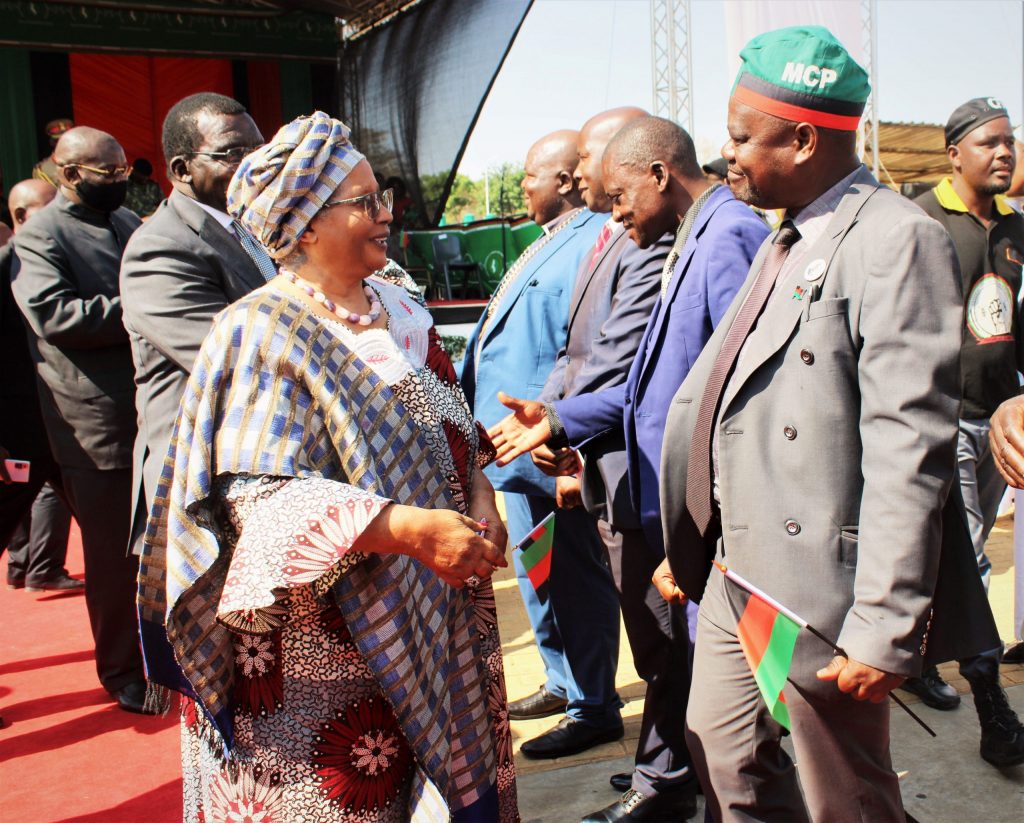
The former President has not travelled to the North (save for the funeral of Goodall Gondwe) and has primarily shunned public events, opting to host his own, including the current food initiative, which he has focused on the Eastern Region and during Cyclone Freddy.
Aside from the disenfranchised MCP and DPP supporters, at least a quarter of 2019 and 2020 Presidential polls were young voters- who were buoyed by Vice President Saulosi Chilima and many more in the re-run presidential race with the promise of a better Malawi under Tonse Alliance.
This group is frustrated mainly that promises of jobs, loans and better life seems to have been illusions and most of them indicate they are unlikely to vote again.
With an estimated 10 million voters, Joyce Banda can gain 25 percent or more if she throws herself in the ring and regains most of her disputed 2014 1 056 236 votes. Her charity network, especially the post Cyclone Freddy Initiative, has seen her name being thought favourably even in traditional DPP and MCP areas. She could be the third alternative to voters who are not interested in the two rivals- MCP and DPP.
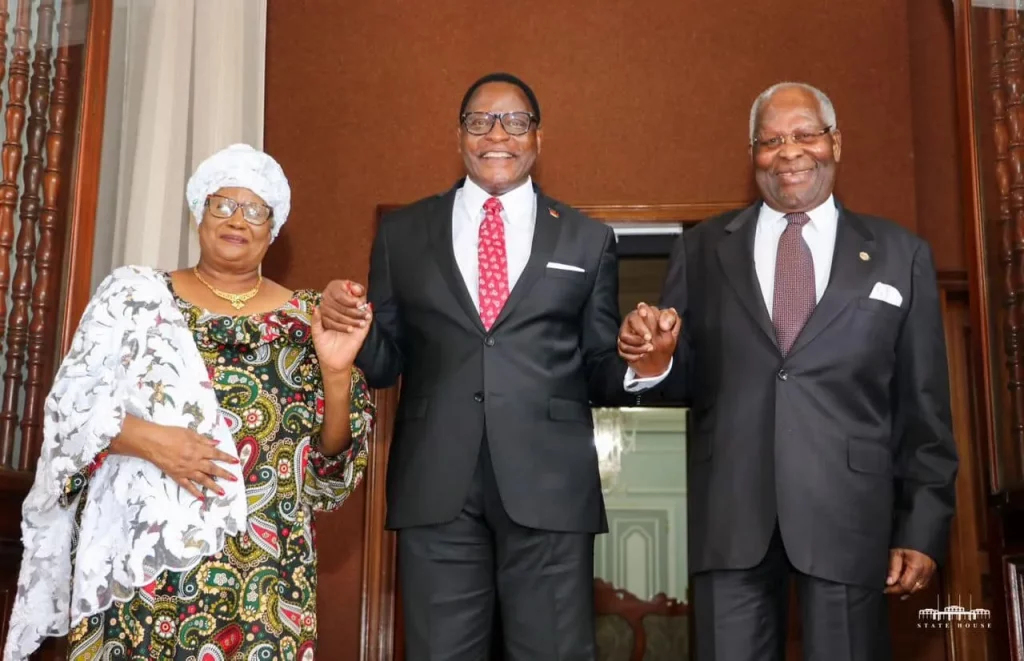
President Banda’s reign was challenging, but she performed above average compared with her two successors.
Facts are hard; JB scores higher in most leadership categories
Less than a decade after being ousted as President, Joyce Banda could make a sensational comeback to the Kamuzu Palace. According to media reports after a well-attended rally in Area 23, one of the most populous townships in the Capital Lilongwe, the former President could join hands with a few politicians she has worked with. One of her strengths is making deals.
She presented her nomination papers in 2019 but worked a deal to support MCP candidate President Lazarus Chakwera after a brief deal with Vice President Saulosi Chilima. The ease of making deals makes her one of the strongest politicians on the local scene who can speak to literally anyone.
The Area 23 rally was seen as a test of her popularity and that of her Peoples Party (PP), for which she has remained president since leaving office in 2014. She has addressed PP-related events and other engagements at her residence and her base in Zomba Malosa.

The rally led to speculation that she might be setting the stage for her return. Her speech calling people to vote for those that “serve and save them” in time of need was interpreted- her associates and supporters claim misinterpreted that she will be gunning again for her office.
Immediately the reports came out; her critics started shouting cash gate, the looting of government resources up to K39 billion by a coalition of politicians- some in her Peoples Party, Government officials and businesses.
Cashgate, corruption- JB took decisive actions
For many who recall JB’s fall from grace after the cashgate- they forget that she is the only leader since multiparty democracy to have taken decisive actions to deal with the matter- publicly and transparently, our analysts charge.
First, she decisively ordered an audit and suspended government payments to assess the wide impact of the cashgate and unlike her male peers, nobody was spared if he was mentioned or implicated in the cashgate.
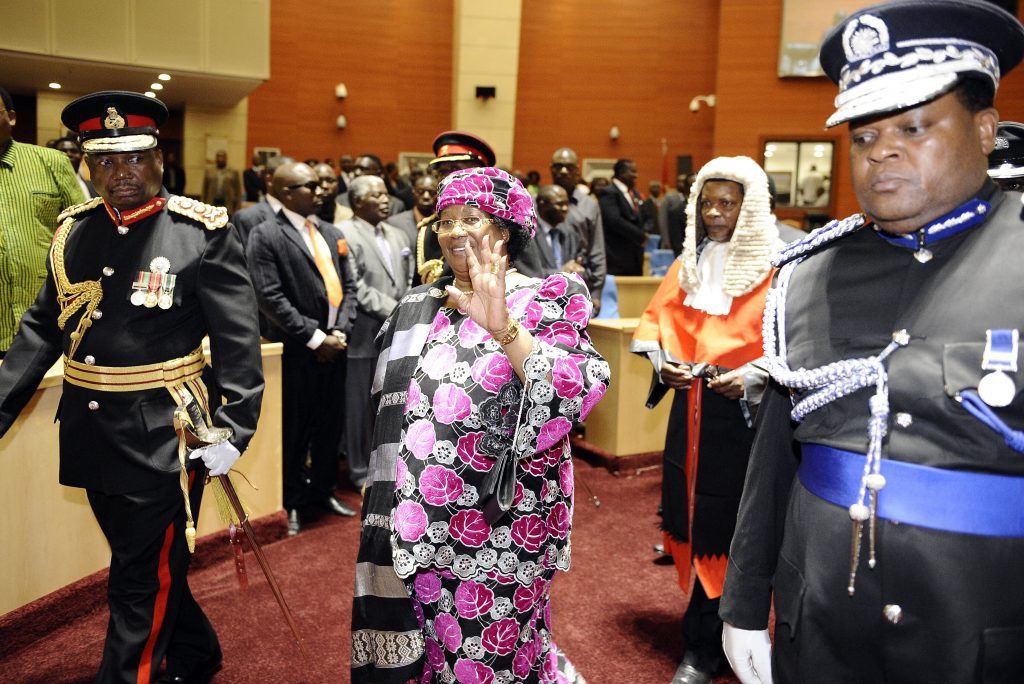
It did not matter how close you were to the President. Her Attorney General and Minister of Justice, her party Director, and Treasury Budget Director, alongside other 70 plus individuals, were arrested in connection with Cashgate.
The new Director of Public Prosecutions, the new Justice team led by Fahad Assani and the Anti-Corruption Bureau were given a free hand, including hiring private lawyers to prosecute the cases quickly.
These actions can be contrasted with all male Presidents from Bakili Muluzi, Bingu and Peter Mutharika to Lazarus Chakwera. They either act only after pressure, hide reports, or simply ignore the public looting.
President Chakwera has failed to act on the K150 billion scandal related to Zuneth Sattar; instead, his administration has been working overtime to throw spanners into ACB to charge and prosecute those related or close to the President. Several scandals, including Fertilizer Butchery, Chief and multibillion-kwacha contracts, East Bridge fertiliser and Namibia fertiliser deals, passport imbroglio and many more- the President has failed to act, fire or order an audit. Nobody is taken to account under President Chakwera.
The scandals under President Chakwera in kwacha or dollar terms- surpass Cashgate in trillions of kwachas, and nobody has asked him not to run again.
President Mutharika, six years reign, is accused of sitting on a report for the K230 billion cashgate that happened under the first DPP regime, and Police and Treasury officials were arrested for K400 million. The ACB claimed then it had passed 16 names, including Cabinet Ministers who were close to the President. No action was taken.
Within the six years, scandals unravelled included Police rations, cement gate, maize gate (which the Minister was fired after inquiry and acquitted in court) and tractor gate that implicated many officials and politicians.
“Using cashgate as a yardstick and measuring it with the reactions of President Chakwera and President Mutharika, President Banda did a lot in governance to restore credibility to government systems. Some of those arrested made deals under DPP to escape justice; some are senior officials, MPs and associates of Ministers and MCP at large with government contracts. Just mention the ones arrested then and see where they are, cashgate accusations on JB sounds hollow when you compare her decisions with her peers,” noted a former Treasury auditor we asked to examine scandals since 1994.
Nepotism, that one JB scores very low
The MCP and DPP traditional bases are aligned to the tribe of their leaders, and this has been constructed to ensure that tribesmen and women enjoy more than other parts of Malawi.
President Lazarus Chakwera, as leader of the opposition, criticised President Mutharika for being nepotistic and favouring people from his Lhomwe tribe and Southern Malawi over the national being.
MCP media teams produced a long list of Cabinet and critical public officials it claimed proved the nepotism that was the DNA of the DPP.
The cited Police, MRA, Military (though for a time was headed by General Vincent Nundwe from the North), State House, Ministry of Finance, Ministry of Health (though Dr Kalirani from Dowa headed the Ministry for a while), Ministry of Agriculture, Principal Secretaries, Reserve Bank of Malawi, and Director of Public Procurement among others as a key example of nepotistic DPP.
Four years in State House, the MCP reflection of the same institutions, save for the Reserve Bank Governor, were replaced by people from “the President’s region”, and several Ministries are being loaded with Principal Secretaries, Directors and Deputy Directors for districts and regions.
Compared to Joyce Banda- only General Henry Odillo came from Balaka- near her home in Zomba; the rest were appointed based on merit in that region of origin. President Banda brought in experts in the field, from Charles Chuka at the Reserve Bank to Charles Mkwezalamba at the Treasury, to fix the cashgate crisis.
She presided over the least nepotistic administration after Presidents Kamuzu Banda and President Bakili Muluzi, who had a nationalistic outlook in public appointments. President Muluzi tried to create political balance by appointing someone from every district at every level.
If nepotism were measured, President Banda would emerge as a nationalist, not a tribal leader. She was also a decisive leader in making other decisions, including those related to the economy.
JB sorted fuel, energy, and economic crises in six months
President Banda inherited a total economic mess in April, and immediately, she set about getting emergency fuel supplies. Donors promised funds to create safety nets for the poor, who would be worst hit by inflation once she freed the kwacha exchange rate.Changes at the top of the police service, anti-corruption bureau and attorney general’s office followed, and so did other appointments, including the Chairperson of the Electoral Commission, many of whom were well-qualified candidates.
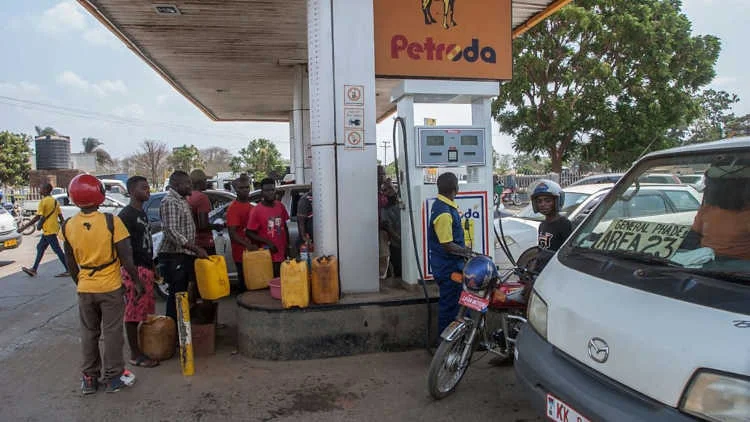
Fuel and electricity blackouts were sorted quickly, and she had to make a tough call devaluing the kwacha from K164 to around K330. Inflation went down but later went back up after the fallout from the cashgate scandal.
She formulated an economic recovery plan that paid off to stabilise the economy, the effects of which spilled into President Mutharika’s tenure. Mutharika presided over a stable economy with inflation decreasing to a single digit. Others argue Joyce Banda’s economic recovery plan laid the foundation for stability.
Since 2019, Malawi’s economy has refused to grow, and efforts by President Lazarus Chakwera to devalue the kwacha have sunk many into poverty and failed to regain the kwacha stability, which is now heading towards a K2700 mark to British Pound and K2200 to US dollars even in cash sale by official banks.
Can she make it?
In the absence of a third force, President Banda has a chance to build a coalition of the disenfranchised and could, at the next ballot, based on several factors, become an edge over one of the two contenders, the MCP and the DPP.
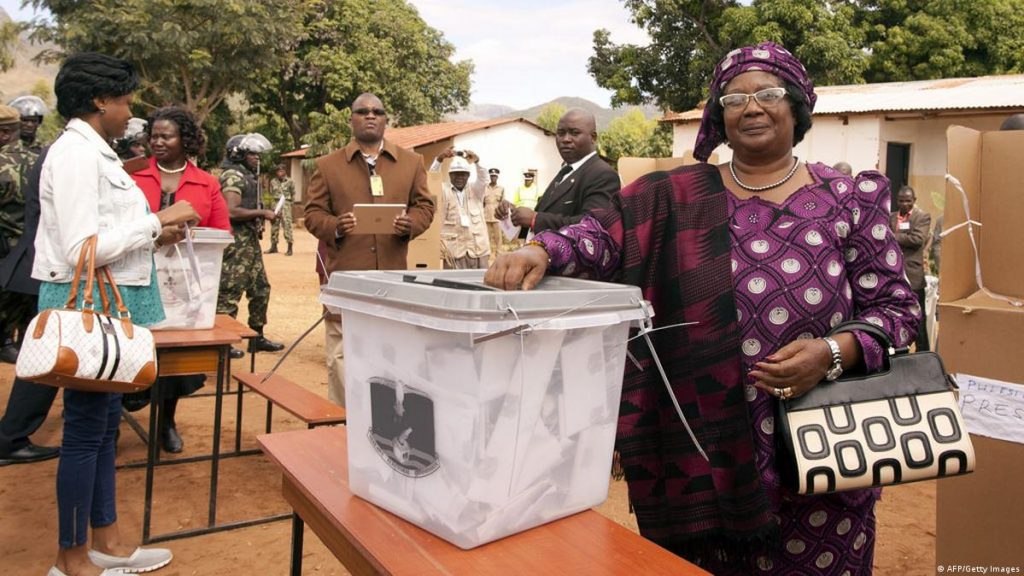
She could use her grassroots network, connect with influential groups such as the church, and develop a national movement offering solid alternatives and governance accountability, not mere promises, as the Tonse Alliance failed to deliver.
A coalition of technocrats, high-end achievers, and a national face could increase the probability of Joyce Banda’s return as a political force and, if voters agree, back to Sanjika Palace.
Examining facts and with less gender bias, she offers an alternative to what is available.
Editors Note: We are working on several profiles, examining public figures who could become the next president outside the four leading candidates of 2019- President Lazarus Chakwera, Former President Peter Mutharika, Vice President Saulos Chilima and UDF leader Atupele Muluzi. While we take responsibility for publishing our expert’s analysis, we do not subscribe or endorse any political candidate or views.






